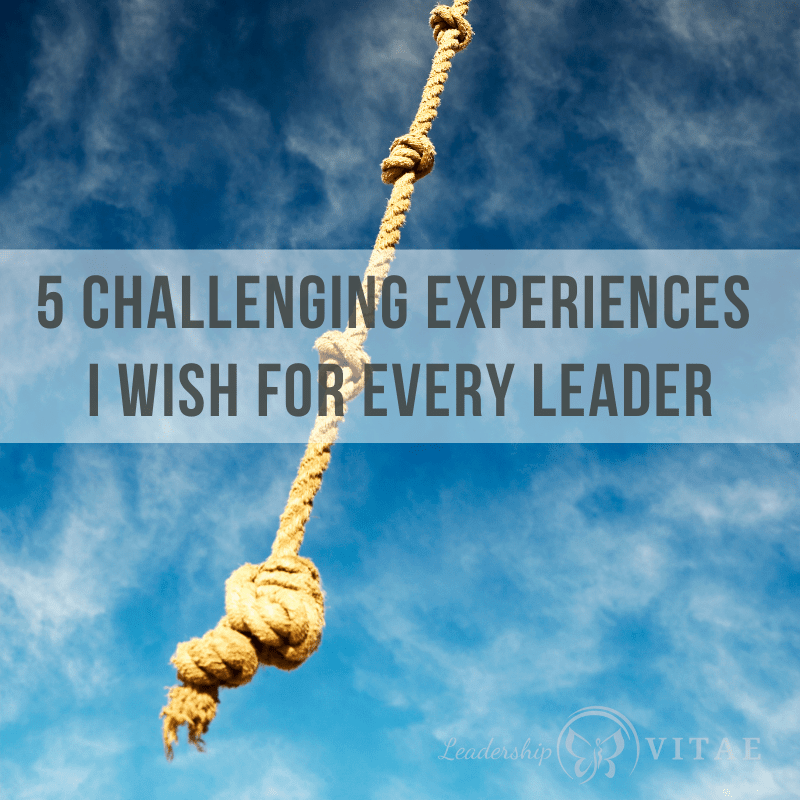
Pre-COVID, I remember sitting in a large conference room with my fellow executives. We were going through leadership training and were posed with a question:
“What type of leader would you wish for your child, friend, or family member?”
As folks volunteered and shared answers from around the room, they all sounded very similar. All great stuff that would be amazing to experience and/or demonstrate. And then there was my answer.
“I wish a bad boss for my son.”
I know the data. That people leave managers, not companies. How important someone’s leader can be to their development, potential, and career trajectory. Yet I stand by my statement.
The original bad boss
If you’re skeptical, you’re not alone. I was too…decades ago. In my first real job, I worked for Lloyd. He micromanaged in the extreme, even insisted on reviewing every email team members created before they hit send. The red pen on his desk was probably his prized possession.
I’d visit with my father, who has been a mentor for as long as I’ve been working, and complain loudly about Lloyd and how he treated us. My father’s words were “pay attention.”
Huh? Why would I pay attention to someone that makes us all feel like crap? Why would I watch and learn from him???
“Because I know him. This is what prolonged stress and strain has done to him. We all have a choice in how we lead when times are good, and when times are bad. Some day, you’ll hit bad times. Remember how you feel so that you can choose another way when you’re a leader. So that you never cause anyone else to feel the way you do now.”
I’ve never forgotten the way Lloyd made me and my peers feel. How the red pen would make me cringe. I stood up to him and carved out my place, but I was also early in my career with no mortgage or family dependent on me. I saw what he did to those with fewer options.
Critical learnings from challenging circumstances
Having a bad boss influenced me as much or more than the average, good, and great ones that followed. It helped me develop mindfulness of positional authority so I didn’t abuse it when eventually it was my turn to lead.
But a bad boss wasn’t the only challenge I look back on as an unexpected gift.
There are experiences we are taught to avoid in our career. Ones that are often thought of as career limiting. I’d argue that they build resilience, empathy, and humility. And that those are critical to effective leadership.
The more senior we become as leaders, the more important it becomes that we remember the hard lessons. So that we are never so high that we forget how it feels to be on the other end of our difficult decisions or conversations.
So for every leader, I wish five experiences. They may be painful at the time, but I believe they pay dividends when we are responsible for others’ development, careers, or paychecks.
1. Work for a bad boss
A bad boss helps us learn what not to do, and how it feels to be on the receiving end of crappy behaviors.
2. Receive a bad review
Even if we suspect one is coming, being told we haven’t performed is hard to hear. However, it gives us an opportunity to learn how to give one gracefully (or how not to) and how it feels to receive one.
3. Lose a job
I don’t wish anyone to lose their income or be unable to support themselves or their family. However, for leaders, it’s an invaluable experience. Going through a job loss provides insight to the other side of decisions if/when we are ever in the position to have to eliminate positions or terminate for cause. It can help leaders be mindful of choices during the good times to avoid reductions when conditions change.
4. Make a career limiting mistake
Small mistakes may be overlooked, brushed off, or excused. Make a BIG one that negatively impacts an account, customer or company. Knowing our limits, how to push them, and how to recover from going too far are critical leadership skills and give us insight to helping others navigate the same. Because if we never make mistakes, or allow others to, we – and our teams – can always do more.
5. Get turned down for a new opportunity or promotion
It’s important that we all learn how to hear the word “no” at some point in our lives and careers. Learning how to take a no, redirecting and/or how to turn it into a “not yet” or eventual “yes” allows us to move forward through inevitable obstacles and help our teams navigate the same.
Embrace the challenges as a chance to grow
I’ve been on the receiving end of all of these. Some more than once. Not to put too fine a point on it, but they sucked. A few took me a while to embrace for the learning and growth I now know they represent. Even the worst bosses. Even losing my job.
Bad things can happen without making us bad employees or failures. If we can separate what we do and what happens to us from who we ARE, it’s easier to take the learnings from the challenges we face. Easier to retain our sense of self and value, while building empathy, resilience, and humility.
While part of me doesn’t look forward to the day my son and I talk about his first bad boss, bad review, missed promotion, or lost job, I refuse to wish them away. Because a smooth path would deny him so much.
Eventually his path will get bumpy – that is life and is inevitable. I’d rather it happen early to give him the perspective, experience, and wherewithal to be ready. Ready for that day he is called upon to lead, as I hope he will be, and shoulder responsibility for others.
My job is to ensure he knows what leadership really means, and be there when the hard things happen that will prepare him for it.








